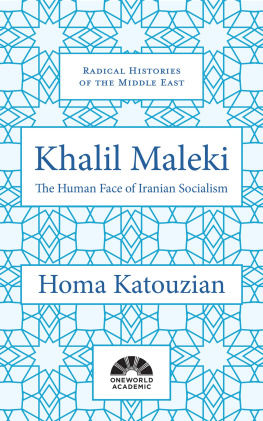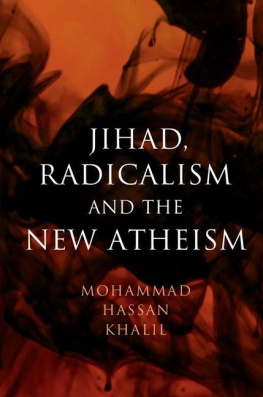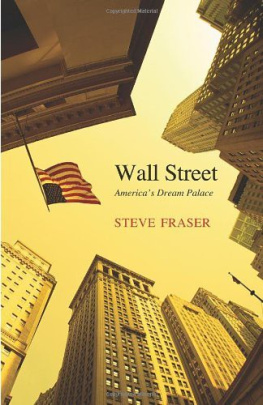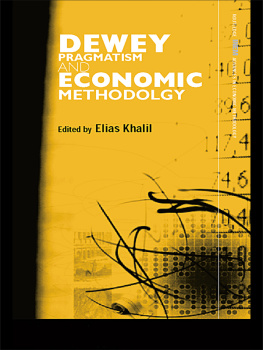Americas Dream Palace
Middle East Expertise and the Rise of the National Security State
OSAMAH F. KHALIL
Cambridge, Massachusetts
London, England
2016
Copyright 2016 by the President and Fellows of Harvard College
All rights reserved
Jacket photos: top, Getty Images; bottom, Pictorial Parade/Archive Photos/Getty Images
Jacket design: Jill Breitbarth
978-0-674-97157-8 (hardcover : alk. paper)
978-0-674-97420-3 (EPUB)
978-0-674-97419-7 (MOBI)
The Library of Congress has cataloged the printed edition as follows:
Names: Khalil, Osamah F., 1971 author.
Title: Americas dream palace : Middle East expertise and the rise of the national security state / Osamah F. Khalil.
Description: Cambridge, Massachusetts : Harvard University Press, 2016. | Includes bibliographical references and index.
Identifiers: LCCN 2016013981
Subjects: LCSH: Middle EastStudy and teaching (Higher)United States. | National securityUnited StatesHistory. | United StatesForeign relationsMiddle East. | Middle EastForeign relationsUnited States. | Research institutesUnited States.
Classification: LCC DS61.8 .K47 2016 | DDC 956.0071/173dc23 LC record available at https://lccn.loc.gov/2016013981
For Dalal and Laila
Contents
- Private Knowledge
- American Missionaries, the Inquiry, and the First World War in the Middle East, 19171922
- Wartime Expertise
- The Office of Strategic Services, the Army Specialized Training Program, and World War II in the Middle East, 19401945
- A Time of National Emergency
- The National Security Establishment, Academic Institutions, and the Origins of Middle East Studies, 19471957
- Americas Sheet Anchors
- Creating Cold War Universities in the Middle East, 19221962
- (In)Visible Government
- The National Defense Education Act and the Establishment of Middle East Studies, 19501967
- Modernizing the Middle East
- Constructing Traditional Society and Expertise, 19501973
- Privatizing Knowledge
- Think Tanks, Middle East Expertise, and the Decline of Area Studies, 19731988
- Empire and Its Limitations
- Neoconservatism, the Bush Doctrine, and the Global War on Terror, 19892009
ABCFMAmerican Board of Commissioners for Foreign MissionsACEAmerican Council on EducationACLSAmerican Council of Learned SocietiesAEIAmerican Enterprise InstituteAIOCAnglo-Iranian Oil CompanyARAMCOArabian-American Oil CompanyASTPArmy Specialized Training ProgramAUBAmerican University of BeirutAUCAmerican University in CairoBASRColumbia University, Bureau for Applied Social ResearchBNEBoard of National EstimatesBOBBureau of the BudgetCCFCongress for Cultural FreedomCFRCouncil on Foreign RelationsCIACentral Intelligence AgencyCMESHarvard University, Center for Middle East StudiesCOICoordinator of InformationCPDCommittee on the Present DangerCSISCenter for Strategic and International StudiesDCIDirector of Central IntelligenceDIADefense Intelligence AgencyDRNDivision of Research and Analysis for the Near East, South Asia, and AfricaERSState Department External Research StaffFSIState Department Foreign Service InstituteHEWDepartment of Health, Education, and WelfareINRBureau of Intelligence and ResearchJCSJoint Chiefs of StaffMESAMiddle East Studies AssociationNATONorth Atlantic Treaty OrganizationNDEANational Defense Education Act of 1958NEABureau of Near Eastern AffairsNECANear East College AssociationNIENational Intelligence EstimatesNISNational Intelligence SummariesNSANational Security AgencyNSCNational Security CouncilNSRBNational Security Resources BoardODMOffice of Defense MobilizationOEUnited States, Office of EducationOIROffice of Intelligence and ResearchONEOffice of National EstimatesOPECOrganization of the Petroleum Exporting CountriesOREOffice of Research EvaluationOSSOffice of Strategic ServicesOWIOffice of War InformationPLOPalestine Liberation OrganizationPPSState Department Policy Planning StaffPWDPsychological Warfare DivisionR&AOSS Research and Analysis BranchSIOSS Secret Intelligence BranchSPCSyrian Protestant CollegeSSRCSocial Science Research CouncilUNUnited NationsUSAIDUnited States Agency for International DevelopmentVOAVoice of AmericaWINEPWashington Institute for Near East Policy
Except where noted, all translations from Arabic are my own. Transliterations of Arabic are based on the standards of the International Journal of Middle East Studies with some minor modifications.
It is no coincidence that the great world conquerors of history have fought in and over the Middle East. Any power that has hoped to extend its domination over continents has learned that domination of the Middle East is an essential step. And any power trying to resist continental expansion by another has learned in turn that the Middle East must be protected at all cost.
KERMIT KIM ROOSEVELT JR.
The port of Aden was bustling when the USS Iroquois arrived in the summer of 1867. A thousand-ton corvette, the Iroquois departed New York in February bound for China and Japan. Aden was the midway point in the voyage. Alfred Thayer Mahan, the ships executive officer, briefly visited the British-controlled port, which facilitated trade between the Indian Ocean and the Arabian Sea. Almost four decades later, Mahan recounted the details in his memoir. Although he was impressed by camels and reflected at length on the ships of the desert, Mahan was less enamored with the people he encountered. The Iroquois left Aden for Muscat, near the entrance to the Persian Gulf. Away from the open sea, Mahan wrote, the heat confirmed the association of the name Arabia with scorching and desert. He marveled at the waters green color and wondered if it inspired the lines in Thomas Moores poem, Arabys Daughter:
No pearl ever lay under Omans green water
More pure in its shell than thy spirit in thee.
Mahans romanticism was exceeded by his admiration for Britains military presence along the main maritime trade routes. It is not that there is so much of him, he observed of British soldiers, but that he is so manywhere. Britains empire, Mahan wrote, was not a chance phenomenon, but an obvious effect of a noteworthy cause; an incident of current history, the exponent unconsciously to himself, of many great events. He added, In our country we have wisely learned to scrutinize with distrust arguments for manifest destiny, but it is, nevertheless, well to note and ponder a manifest present, which speaks to a manifest past.
Eighteen years after visiting Aden and Muscat, Mahan joined the newly established Naval War College as a lecturer of Naval Tactics and History. It was a fateful choice. Although Mahan was promoted to captain, he disliked the navy and was not viewed favorably by his superiors or subordinates. Quiet and reserved, Mahan enjoyed and was more adept at writing naval history than he was at ship duty. His books on sea power inspired dramatic changes in Britain and the United States. They also transformed Mahan into a celebrity strategist and advisor, the forerunner of todays national security academic. In spite of his rank, Mahan met with senior British military and political leaders eager for his insights. At home, Senator Henry Cabot Lodge and an ambitious Theodore Roosevelt promoted the captains expertise, much to the chagrin of his naval rivals. As assistant secretary of the navy and later president, Roosevelt implemented Mahans theories on naval power.
















